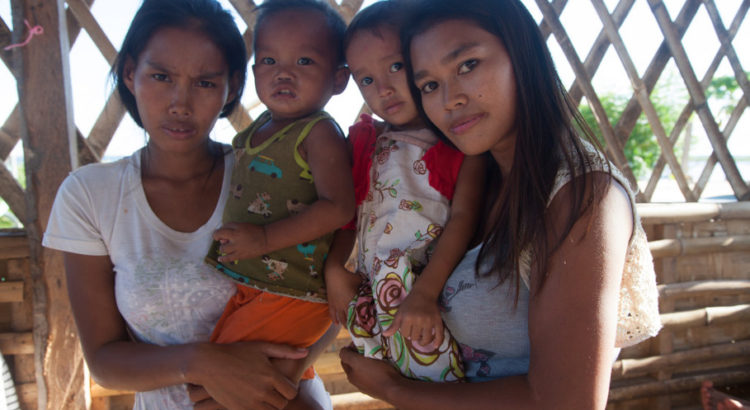Asia/Indonesia/Jack Britton
Resumen: El Presidente Joko «Jokowi» Widodo se reunió con representantes del Fondo de las Naciones Unidas para la Infancia Internacional de Emergencia, comúnmente conocido como Unicef, el lunes (27/02), tras su regreso de Australia. Marta Santos Pais, representante especial del Secretario General de la ONU sobre la Violencia contra los Niños, también asistió a la reunión, en la que planteó el delicado tema del matrimonio infantil con el líder de Indonesia. Santos País elogió a Indonesia por sus esfuerzos para aumentar la protección de los niños contra la violencia sexual durante la reunión de alto nivel. Sin embargo, también explicó que el matrimonio infantil en Indonesia sigue siendo un problema, con casi el 25 por ciento de las niñas de Indonesia que se casan antes de la edad de 18 años. Los datos publicados por UNICEF indica que en algunas zonas de este número es aún mayor, con las tasas de matrimonio de niñas menores de edad en ciertas provincias llegando tan alto como 36 por ciento. Estadísticamente, alrededor de 1.000 niñas se casan todos los días en Indonesia, lo que significa que la nación tiene una de las tasas de matrimonio infantil más alarmantes en la región de Asia y el Pacífico. Debido a la extendida práctica de Siri nikah – matrimonios que no están registradas o reconocidas por el estado – las cifras exactas sobre el matrimonio infantil en el país siguen siendo difíciles de determinar.
Jakarta. President Joko «Jokowi» Widodo met with representatives of the United Nations International Children’s Emergency Fund, commonly known as Unicef, on Monday (27/02) following his return from Australia.
Marta Santos Pais, special representative of the UN Secretary General on Violence Against Children, also attended the meeting, where she raised the sensitive topic of child marriage with the Indonesian leader.
Pais praised Indonesia for its efforts to increase protection for children against sexual violence during the high-level meeting. However, she also explained that child marriage in Indonesia remains a problem, with nearly 25 percent of Indonesian girls marrying before the age of 18.
Data released by Unicef shows that in some areas this number is even higher, with the marriage rates of underage girls in certain provinces reaching as high as 36 percent.
Statistically, around 1,000 girls are married every day in Indonesia, which means the nation has one of the most alarming child marriage rates in the Asia-Pacific region. Because of the widespread practice of nikah siri – marriages that are not registered or recognized by the state – the exact figures on child marriage in the country remain hard to ascertain.
Poverty, culture and religion are all elements that contribute to the widespread practice, one that has unfortunately found support from some of the decision makers.
In 2015, Indonesia’s Constitutional Court refused to raise the legal marriage age to 18 during a judicial review of the 1974 Marriage Law. That decision will no doubt increase the number of child brides throughout the archipelago. Ironically, the court reached its decision amid a global campaign to end child marriage.
The current Marriage Law sets the minimum age for girls to marry at 16. The law also includes a clause that allows girls under the age of 16 to marry, if their parents obtain a dispensation from the local Religious Court.
These dispensations are in large part granted to families who do not wish to live with the perceived shame of having an unwed, pregnant daughter. Dispensations are also often extended to families who only suspect their daughters of engaging in sexual relations.
Unplanned pregnancies are a driving force behind child marriage, and unfortunately these are largely caused by cultural and religious taboos against sex education and the use of contraceptives.
One of the many tragic results borne out of the high frequency of child marriages and child pregnancies in Indonesia is the striking maternal and infant mortality rates.
Poverty and a lack of adequate sex education are both causes and effects of child marriage that, when coupled with family and communal traditions, result in a dangerous cycle of poverty and suffering for the young women involved.
A 2016 report by Unicef notes that girls who are married are 11 times less likely to be enrolled in school when compared to unmarried girls of similar age.
The National Commission on Violence Against Women (Komnas Perempuan) has stated that child marriage is a form of gender-based violence. As the commission’s deputy chairwoman, Yuniyanti Chuzaifah, once said: «The state, by continuing to permit child marriage in Indonesian society, is failing to uphold the rights of girls, the same rights that the state has committed to protect by signing various international human rights treaties.»
Education Minister Muhadjir Effendy, who accompanied Jokowi during Monday’s meeting with Unicef, explained that the government will use its 12-year compulsory education program to try to prevent child marriages by keeping children in school.
Along with ensuring that children finish their schooling, the government should also move to enact legislative change and engage in public campaigns to tackle the disturbing prevalence of child marriage in Indonesia.
Jack Britton is a writer and volunteer with Komnas Perempuan in Jakarta. The views expressed in this article are those of the author and do not necessarily reflect the official position of Komnas Perempuan.
For inquiries, contact: jackbritton@live.com.au or jackbritton@support.komnasperempuan.go.id
Fuente:







 Users Today : 48
Users Today : 48 Total Users : 35460351
Total Users : 35460351 Views Today : 69
Views Today : 69 Total views : 3419097
Total views : 3419097